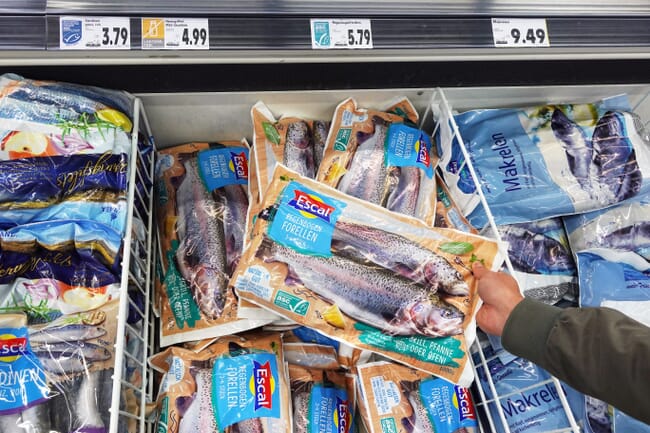
© Shutterstock
A new report from the Aquaculture Stewardship Council (ASC) - a seafood certification organisation - has revealed consumer preferences and perceptions of seafood products, with a particular focus on how sustainability of the foods were regarded.
The study included input from over 15,000 consumers from 14 countries about their consumption and preferences, with 87 percent of the participants acknowledging that the inclusion of fish and seafood products in their everyday shopping lists was either important or very important.
The importance of seafood to consumers varied slightly based on the region. The highest agreement observed was in Spanish participants, with 92 percent acknowledging its importance, whilst the lowest was observed in interviewees from Japan, although here there was still a significant 81 percent agreement to the importance of fish and seafood products.
Common reasons for the popularity of fish and seafood products were the health and taste benefits, but the sustainability of the products was less of a consideration to consumers.
Whilst 83 percent of consumers indicated that they would be somewhat motivated to choose seafood products that were marked as sustainable, the most important considerations influencing their choices were the absence of antibiotics (46 percent), good water conditions (35 percent), and the safety of the product (30 percent). The social responsibility and worker conditions associated with seafood products were much less important to consumers.
Just as the importance of seafood to consumers varied by country, so too did the relevance of sustainability markers. The sustainability of seafood and fish products was most important to consumers in North-Western Europe, for example 82 percent of Italian participants indicated that they would opt for sustainability when given the choice, whilst only 48 percent of Japanese consumers indicated the same result.
Additionally, the survey revealed that only two percent of consumers spontaneously consider sustainability when shopping for seafood products, indicating that prompts such as labels and branding are needed to encourage shoppers towards sustainable purchases.
Consumers placed most trust in independent certification organisations, with ASC being the most trusted label for farmed seafood amongst the participants.
“One of the most striking findings is that although two-thirds of people say they are interested in buying more sustainable products, only two percent spontaneously think about sustainability when they are shopping for fish or seafood in the supermarket,” said ASC senior markets and communications director Willem de Bruijn, in a press release from the organisation.
“This clearly demonstrates that consumers want to buy sustainable and responsible fish and seafood, but need an easy visual prompt in store, such as a certification label on the pack, to remind and support them to consciously act on this desire. However, it is also clear that we need to continue educating consumers about responsibly farmed seafood, why they should choose it and the role it plays in future food security,” he added.




